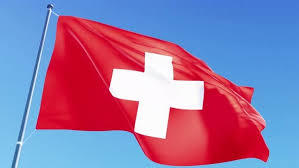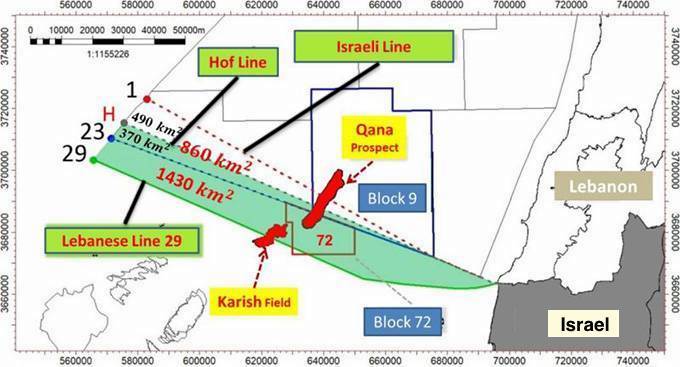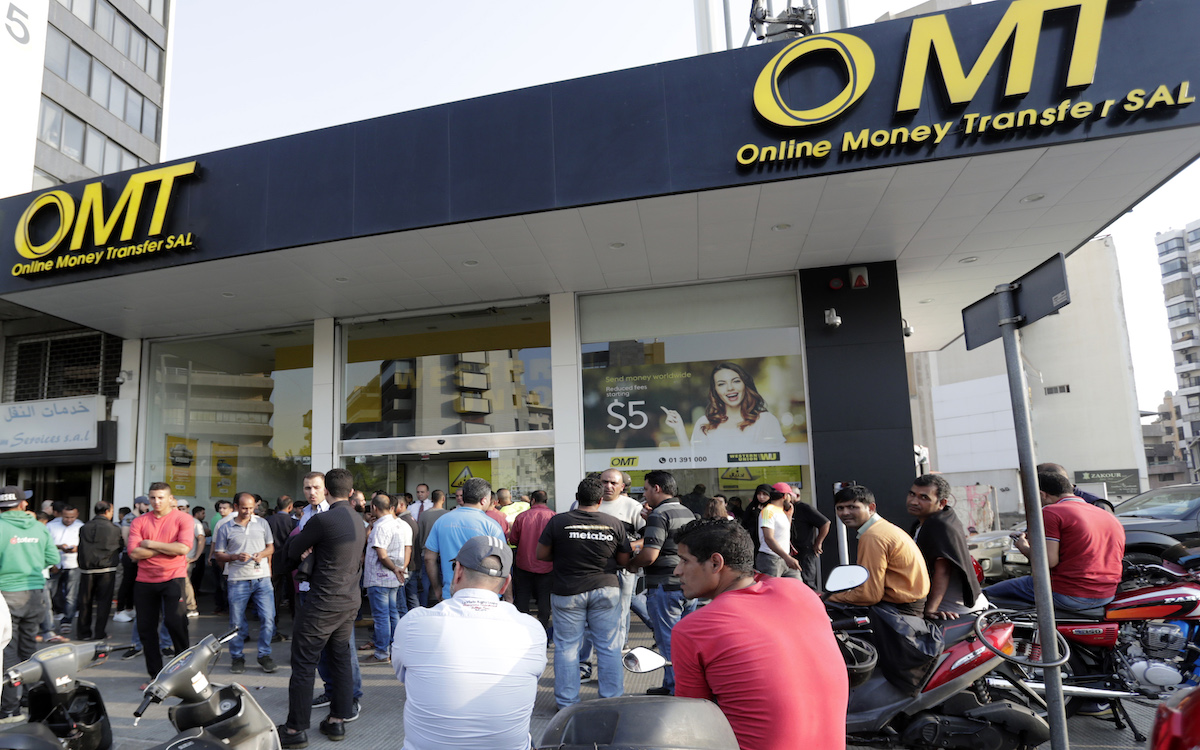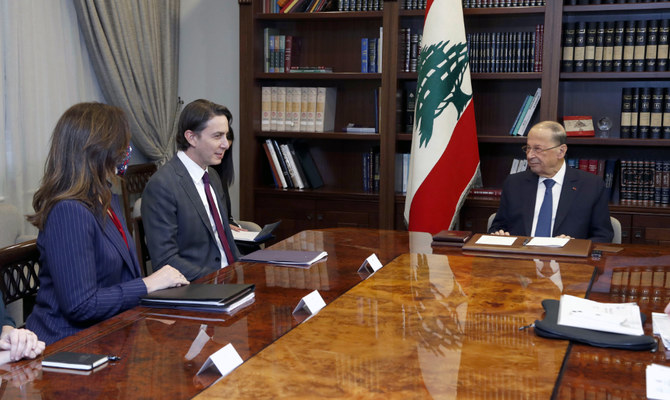
by naharnet -- The Swiss embassy in Lebanon on Monday announced the postponement of a dinner that was supposed to bring together Lebanon’s main political parties, after unconfirmed media reports about the event stirred political controversy in the country. “Switzerland has been actively engaged in Lebanon for many years including in conflict prevention and peace promotion. Over the last couple of months, Switzerland, in collaboration with the Swiss based organization Centre for Humanitarian Dialogue, was in contact with the full spectrum of political Lebanese as well as regional and international actors to prepare for consultative discussions, not for a dialogue conference,” the embassy said in a statement. “It is Switzerland’s tradition to offer good offices when asked to do so.
The planned discussions are the result of previous consultations with the full spectrum of political Lebanese as well as regional and international actors, and in full respect of the Taef agreement and the Lebanese constitution,” it added. It also said that “the informal dinner that was supposed to take place this Tuesday at the Swiss residence aimed to further brainstorm with various Lebanese political actors,” adding that “the names circulated in the media do not reflect the actual invitees.” “The dinner has been postponed to a later date,” the embassy added.

NNA - Deputy Speaker of the House Elias Bou Saab, commissioned by the President of the Republic to administer the dossier of southern maritime border demarcation negotiations with Israel, revealed to “Al-Hurra” TV channel the expected date for the completion of the demarcation agreement and the mechanism by which the agreement will be signed. He said: "The intelligence in this agreement stems from the understanding of the American mediator, Amos Hochstein, of the Lebanese situation and the inability to conclude an international treaty with Israel because it is an enemy state for Lebanon. Hochstein took this matter into consideration and found a creative way by concluding an agreement between America and both Israel and Lebanon that defines the points on which the consensus was reached. These are the points that the United States has included in a letter it will send to both Lebanon and Israel. Lebanon will respond by agreeing in writing to the content of the letter, and Israel will respond in the same way.” Bou Saab continued to indicate that the letters may be delivered on the 26th or 27th of this month under the flag of the United Nations in Al-Naqoura. Asked about who will be signing on Lebanon’s behalf, Bou Saab replied, “This decision is taken by the President of the Republic and he will choose the team that will head to Naqoura to present the letter.”
On the content of the call that US President Joe Biden held with President Michel Aoun, Bou Saab said, "It was an important and lengthy call in which the American president touched on the next stage and promised that the American side would be keen to ensure that the Israeli side respects the signed agreement.” Bou Saab emphasized that “this agreement will open up for Lebanon a new horizon of foreign investments that create job opportunities for the Lebanese.” "President Biden thanked President Aoun for his efforts, assuring him of his country's support for Lebanon to ensure its transition to a new stage," Bou Saab added, considering that "Biden's words constitute a new openness to Lebanon." He continued, “It is true that the agreement is the basis, but there is something behind the agreement in terms of gas extraction and openness. We will see on Monday or Tuesday a statement from the Security Council welcoming what has been accomplished and stressing that it is an opportunity of hope for the Lebanese, their economy and their prosperity."

By Samara Azzi -- nowlebanon.com -- “When the coffers are empty and there is a need for more money there is printing of money, which devalues the currency. When you have financial problems, polarity will increase, and so does populism of the left and populism of the right. This can produce a period of disorder and can eventually lead to civil war.” Ray Dalio Once dubbed the Switzerland of the Middle East for its robust banking system, Lebanon’s fiscal disrepute has shocked global banking regulators. Since the start of the uprisings in October 2019, 59 cash-strapped banks have shut their doors on depositors for the first time in Lebanon’s history, just ahead of a government default on its national debt. An alternative cash-based system emerged – one with ties directly to the ruling party, the Free Patriotic Movement (FPM), and Hezbollah. It is controlled by those who are at present the ruling majority, and are appointed to find a solution through an agreement with the International Monetary Fund (IMF) for the 70 billion USD loss of depositors’ money.
For the last twenty years, the United States has failed to curb Hezbollah’s meddling in the banking system. Three banks were shut down in Lebanon when discovered by the US treasury to have had ties to Hezbollah and its Syrian allies, and engaged in money laundering activities. Bank Al Madina, Lebanese Canadian Bank, and Jammal Trust Bank are three examples of how Hezbollah has tried over many years to infiltrate the Lebanese banking system. All three banks were shut down by Banque du Liban, the central bank of Lebanon, following orders from the US treasury. But, surprisingly, with all the surveillance the US treasury had placed on Lebanese banks over the years to clean up their act, Hezbollah and their allies have since managed to outmaneuver and outsmart the US treasury and its sanctions and seize total control over the entire monetary system in Lebanon.
Welcome to the newly emerged “cash-based” economy, where Qard El Hassan is the only financial institution still standing. What you have in Lebanon right now is a cash remittance system where all cash flowing into the country is controlled by a few groups and individuals taking large commissions – and those same people are charged with reforming the banking system. So, what incentive does the current profiteering government have to reform the system? How can a sanctioned political party/militia and the sanctioned leader of another ruling party be incentivized to reform the system if it takes profit out of their own pockets?

By TAREK ALI AHMAD -- Arabnews.com -- LONDON: Ten years after the US began its mediation efforts, Lebanon and Israel have finally reached an agreement delineating their maritime border in what pundits are describing as a “historic” moment. However, some observers are taking a more cautious view. “It’s at least 10 years overdue,” said Ambassador Frederic Hof, a former director of the Atlantic Council’s Rafik Hariri Center for the Middle East, who served as US mediator in 2012 under President Barack Obama. “We need to be cautious at this point. There is still an elongated ratification process in Israel. There is a question of whether, after the Nov. 1 elections, the deal would be sustained if there’s a change in government,” he told Arab News. “On the Lebanese side, there are a couple of questions. The obvious question is: Are there indeed marketable natural gas deposits under Lebanese waters? And, given the fact that there will not likely be any revenues for five years, will the Lebanese political system undergo some changes that would enable the Lebanese people to benefit from all of this?” The dispute goes back to 2012, when the two countries failed to reach an agreement over the location of their shared maritime border. Israel initially pushed for Line 1 (see map), while Lebanon favored Line 29.
Hof, who was the first US mediator appointed to the process, proposed a line that lay closer to the Israelis’ preferred option. In the end, however, the border that was agreed is Line 23, which is closer to Lebanon’s preferred boundary. At the heart of the dispute are two offshore natural gas fields: the untapped Qana field in Lebanon’s territorial waters and the Karish field in Israeli territory. The contested claims to the resources escalated in July when Hezbollah, the Lebanese Iran-backed militia, launched a drone attack on the Karish field. Israeli air defenses managed to shoot down all three drones before they reached their target. It is hoped this week’s border agreement will stave off similar incidents. According to leaked details of the deal, revenues from gas extracted from the Qana field will be split between Lebanon and French energy company Total, and 17 percent of Total’s revenues will go to Israel. Israel will continue to have exclusive rights to the Karish field. Although the deal settles the maritime border issue, it does not affect the yet-to-be recognized land border between the two countries, the so-called Blue Line that was demarcated in 2000 and is supervised by the UN Interim Force in Lebanon.
Khazen History


Historical Feature:
Churches and Monasteries of the Khazen family

St. Anthony of Padua Church in Ballouneh
Mar Abda Church in Bakaatit Kanaan
Saint Michael Church in Bkaatouta
Saint Therese Church in Qolayaat
Saint Simeon Stylites (مار سمعان العامودي) Church In Ajaltoun
Virgin Mary Church (سيدة المعونات) in Sheilé
Assumption of Mary Church in Ballouneh
1 - The sword of the Maronite Prince
2 - LES KHAZEN CONSULS DE FRANCE
3 - LES MARONITES & LES KHAZEN
4 - LES MAAN & LES KHAZEN
5 - ORIGINE DE LA FAMILLE
Population Movements to Keserwan - The Khazens and The Maans
ما جاء عن الثورة في المقاطعة الكسروانية
ثورة أهالي كسروان على المشايخ الخوازنة وأسبابها
Origins of the "Prince of Maronite" Title
Growing diversity: the Khazin sheiks and the clergy in the first decades of the 18th century
Historical Members:
Barbar Beik El Khazen [English]
Patriach Toubia Kaiss El Khazen(Biography & Life Part1 Part2) (Arabic)
Patriach Youssef Dargham El Khazen (Cont'd)
Cheikh Bishara Jafal El Khazen
Patriarch Youssef Raji El Khazen
The Martyrs Cheikh Philippe & Cheikh Farid El Khazen
Cheikh Nawfal El Khazen (Consul De France)
Cheikh Hossun El Khazen (Consul De France)
Cheikh Abou-Nawfal El Khazen (Consul De France)
Cheikh Francis Abee Nader & his son Yousef
Cheikh Abou-Kanso El Khazen (Consul De France)
Cheikh Abou Nader El Khazen
Cheikh Chafic El Khazen
Cheikh Keserwan El Khazen
Cheikh Serhal El Khazen [English]
Cheikh Rafiq El Khazen [English]
Cheikh Hanna El Khazen
Cheikha Arzi El Khazen
Marie El Khazen